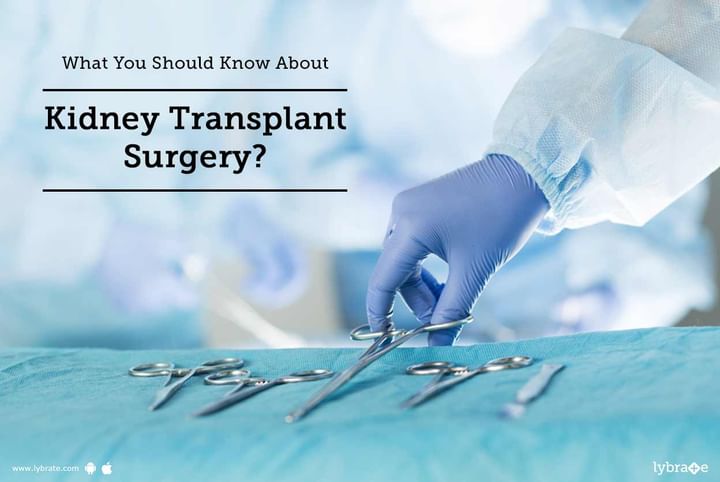What You Should Know About Kidney Transplant Surgery?
Kidney transplant surgery is a surgical procedure where a healthy kidney is used to substitute a diseased one. The healthy kidney is obtained from either a deceased donor or a family member who has a good blood type match with the recipient. Usually, the recipient receives one kidney if the donor is alive and/or both the kidneys from a deceased donor.
Certain reasons for going for a kidney transplant surgery might include:
1. Kidney failure due to diabetes
2. Infections in the urinary tract
3. Autoimmune disorders such as lupus (an autoimmune disorder)
4. Polycystic kidney disorders
5. Obstructions in the kidney
6. Glomerulonephritis, where inflammation occurs in the kidney
Preparation for the surgery
Before the procedure, certain tests are carried out to determine your suitability for the procedure. The tests start with a psychological evaluation followed by blood tests and diagnostic tests to check for health problems. Once the tests are done, you will be placed on the waiting list for kidney recipients. Once the donor is available, you will be asked to get ready for the surgery.
Procedure: The procedure begins with you being administered general anesthesia. An incision is made in the lower part of the stomach, through which the donated kidney is inserted in the body. The next step involves attaching adjacent blood vessels to the kidney so that it has a proper supply of blood. Finally, the ureter of the kidney is linked with the bladder, facilitating normal disposal of bodily wastes. A plastic tube, known as a stent, is placed in the ureter to facilitate urine flow. This is later removed by a procedure called cystoscopy. Once the surgery is completed, the incision is closed by stitches.
Aftercare: After the procedure is completed, you will be given painkillers to ease the pain. Immunosuppressant medications will be prescribed to prevent your immune system from destroying the cells of the donated kidney. Usually, the duration of stay at the hospital post-surgery is about a week. In case you have a concern or query you can always consult an expert & get answers to your questions!



+1.svg)
